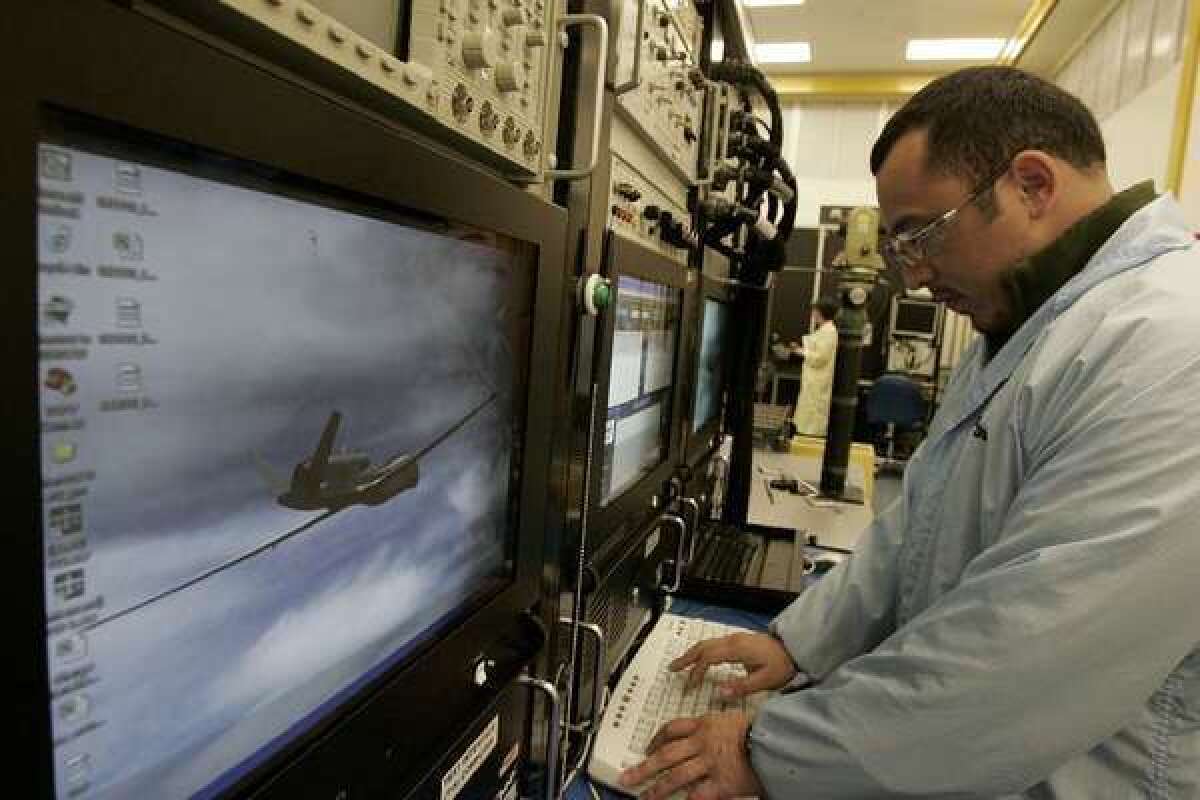Raytheon to move unit headquarters away from El Segundo

- Share via
Raytheon Co., the Waltham, Mass., aerospace giant, announced that two of its four business units will have new headquarters locations.
Raytheon’s space and airborne systems unit headquarters will move from El Segundo to McKinney, Texas, where the company already has a major presence.
El Segundo City Manager Greg Carpenter said the move would result in the loss of 170 jobs. Raytheon would not comment on the job loss numbers.
“We hate to lose any jobs in El Segundo,” he said. “We’re doing what we can to maintain their presence in this city.”
Raytheon still has about 10,000 workers in California. Its sprawling electronics facility in El Segundo is where scientists and engineers in underground clean rooms develop high-tech radars, sensors and cameras. The unit recorded about $6 billion in annual sales last year.
In addition to the space and airborne systems headquarters move, a newly formed intelligence, information and services business will establish headquarters at the company’s existing hub operations in Sterling, Va.
Raytheon made the announcement last week as part of a larger business consolidation that aims to “achieve stronger alignment with its customers’ priorities.” The consolidation would result in annual savings of about $85 million.
Under the plan, the company will go from six business units to four.
The Southland aerospace industry has been steadily downsizing to reflect new budget realities in Washington, where Congress has tightened purse strings on the Pentagon. U.S. military spending -- which grew by double digits after the Sept. 11, 2001, terrorist attacks -- is expected to decline $487 billion over the next decade.
ALSO:
Solar airplane begins first leg of trip across America
Supersonic flight brings Virgin Galactic closer to space
Experimental aircraft speeds to more than 3,000 mph in test flight
More to Read
Inside the business of entertainment
The Wide Shot brings you news, analysis and insights on everything from streaming wars to production — and what it all means for the future.
You may occasionally receive promotional content from the Los Angeles Times.










